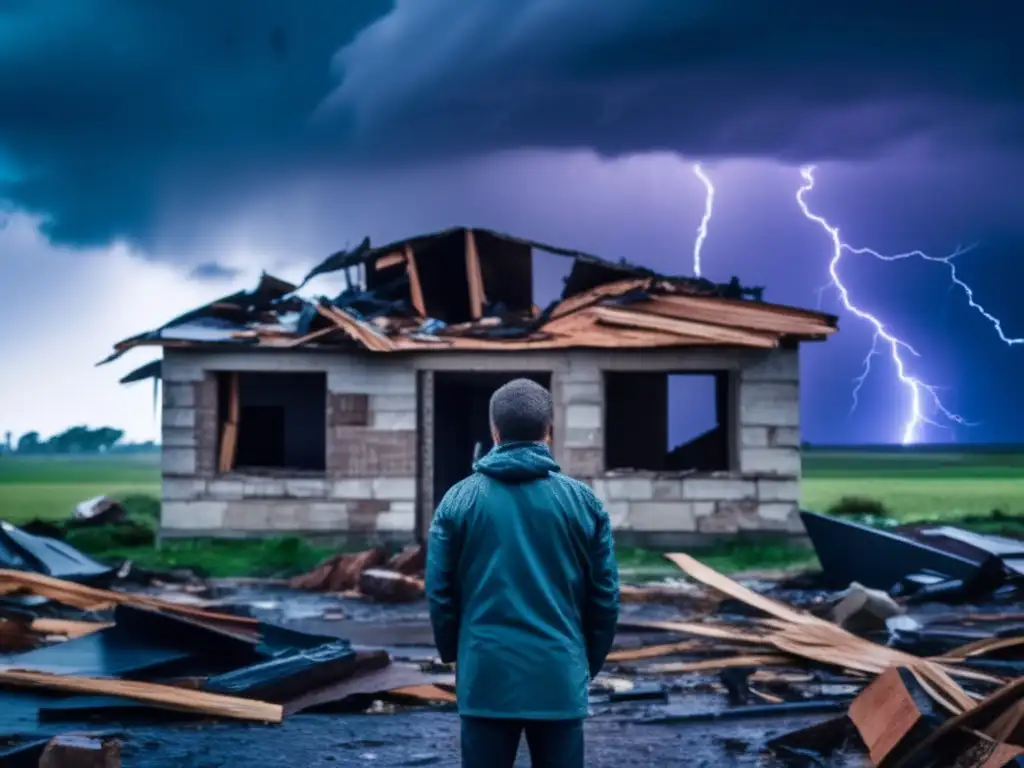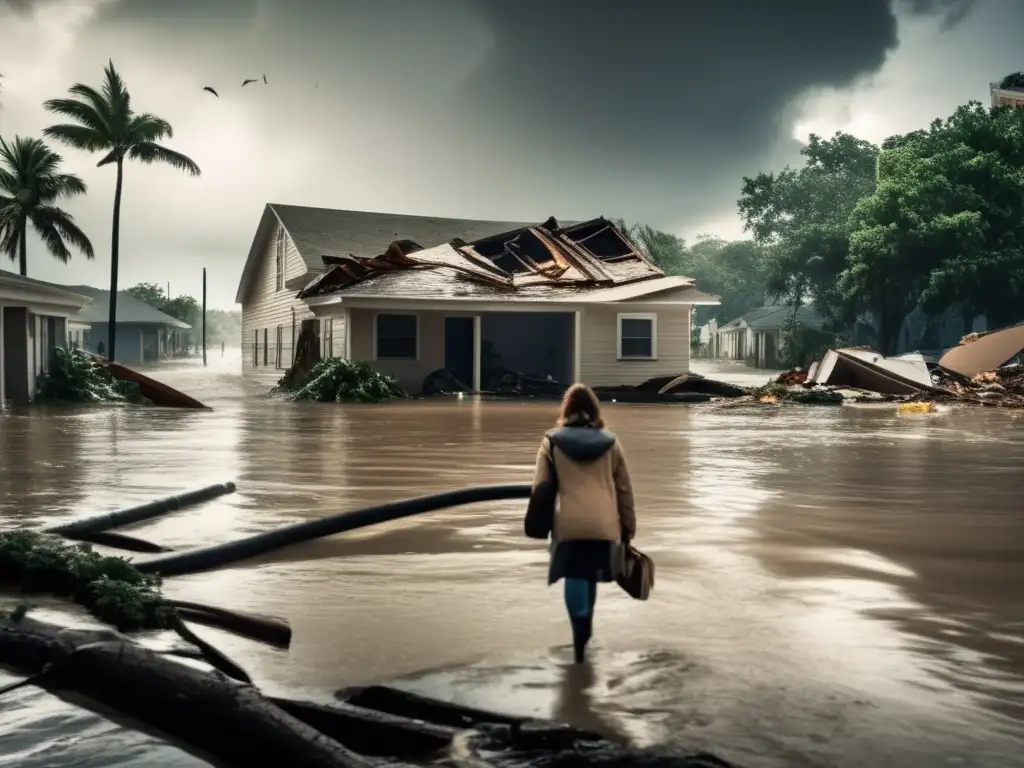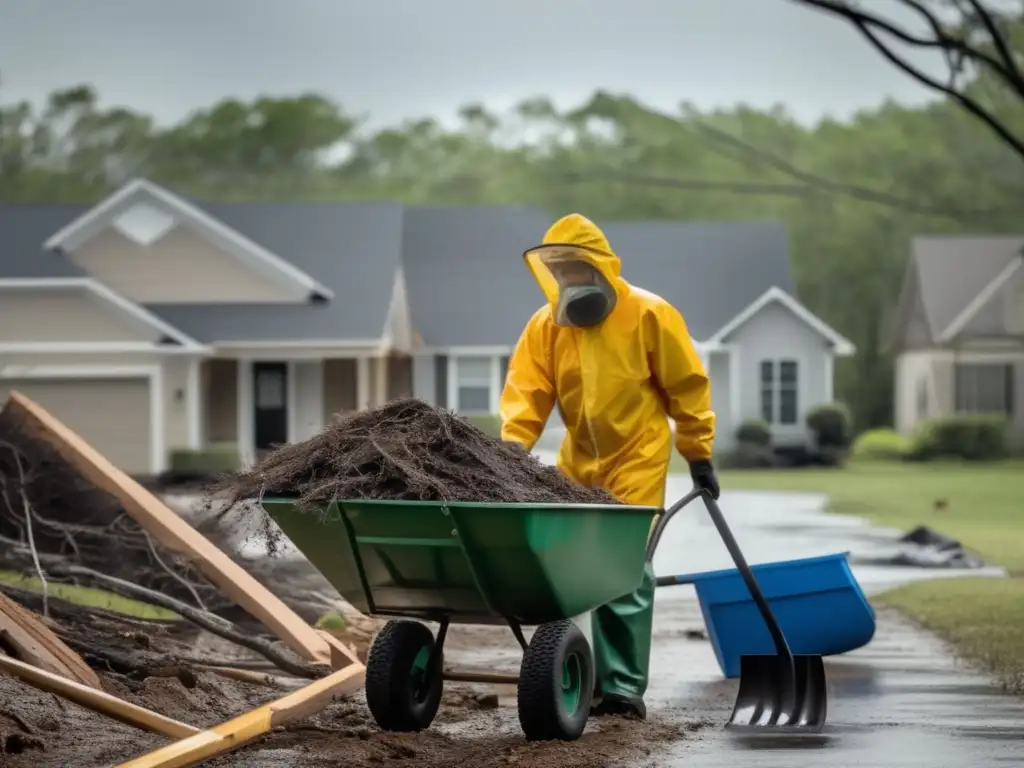Dealing With The Aftermath: Emotional Recovery After A Hurricane

Dealing with the Aftermath: Emotional Recovery After a Hurricane
Introduction
When we think about hurricanes and their impact on our lives, we often focus on physical damage to our homes and communities. These events can also be incredibly traumatic, leaving emotional scars that can last for years. Dealing with the aftermath of a hurricane can be a challenging and overwhelming experience, but it's essential to pay attention to your emotional recovery alongside physical recovery. This article will provide insights into hurricane-related trauma and ways to move forward.
The Impact of Trauma

Understanding Trauma
Trauma is an emotional response to an event or experience that surpasses our ability to cope with it effectively. Hurricanes and other natural disasters often fall into this category, as people struggle to navigate the chaos and destruction left in their wake. This kind of trauma can be acute or ongoing, depending on various factors like the severity of the hurricane and individual circumstances.
The Signs of Trauma
The signs of trauma can vary significantly, but they often include things like anxiety, depression, irritability, and difficulties sleeping or concentrating. You might find yourself struggling to engage in activities you once enjoyed or feeling detached from others around you. It's essential to recognize these symptoms and seek help if they persist for more than a few weeks.
Coping Strategies
There are different strategies that individuals can use to cope with trauma after a hurricane, and what works best for one person may not work for another. Some of the things that people find helpful include mindfulness practices like yoga or meditation, getting plenty of rest and exercise, and avoiding drugs and alcohol, which can exacerbate feelings of anxiety and depression.
Rebuilding Your Life

Adjusting to Change
A hurricane can uproot your life in many ways, and one of the most challenging things about the aftermath is getting used to your new normal. You might be living in a temporary shelter or staying with family, or you may be dealing with significant damage to your home or property. During this time, it's essential to focus on staying positive and finding ways to adapt to the change.
Reconnecting with Community
One of the best ways to rebuild after a hurricane is by reconnecting with your community. Reach out to your friends and family and participate in activities that bring you together. Join a support group or volunteer in your community to help others impacted by the storm. By rebuilding connections with those around us, we can find a sense of belonging and support that can help us heal.
Getting Help When You Need It
While there are many strategies for coping with trauma and rebuilding after a hurricane, sometimes, professional help is necessary. Consider reaching out to a mental health professional if you're struggling to cope with emotions and feeling overwhelmed. Seeking help is a sign of strength, not weakness, and can help you take the next step toward recovery.
Caring for Others

Bolstering Resilience in Children
Kids can be especially vulnerable to traumatic events like hurricanes, and they may struggle to communicate their feelings or fears effectively. Parents and caregivers can help by being attuned to their child's emotional state and providing support and reassurance. Engage children in activities that bring them joy and provide an outlet for creativity, like drawing or storytelling.
Supporting Your Loved Ones
If a friend or family member has been impacted by a hurricane, it's essential to offer support and understanding. Listen to their feelings and validate their experiences. Encourage them to seek professional help if needed and offer to accompany them or provide transportation. Be patient and understanding as they work through the emotional fallout from the storm.
Self-Care for Caregivers
If you're a primary caregiver to someone impacted by a hurricane, it's important to prioritize your own needs for self-care. Take breaks when you need them and engage in activities that bring you joy. If you're feeling overwhelmed, consider reaching out to a support group or seeking professional help. By taking care of yourself, you're better able to care for others.
Frequently Asked Questions

-
How long will it take to recover emotionally after a hurricane?
Recovery time can vary, but it's normal for emotional recovery to take longer than physical recovery. It's essential to be patient and kind to yourself and seek professional help if necessary.
-
What are some signs that I might need professional help?
If you're still experiencing intense emotions, feeling isolated or detached or having trouble functioning normally in your day-to-day life, it may be time to speak to a mental health professional.
-
Is it normal to feel overwhelmed and anxious after a hurricane?
Yes. It's common to feel overwhelmed, anxious, and scared after a traumatic event like a hurricane. Remember to give yourself space and grace for these feelings.
-
What can I do if my child is struggling with emotional fallout from a hurricane?
Be patient and reassuring, and offer them opportunities to express themselves creatively. If they're still struggling, consider seeking professional help from a mental health professional.
-
How can I support someone who has been impacted by a hurricane?
Listen to their feelings, validate their experiences, and be understanding and patient with their recovery process. Be an advocate for their emotional well-being and encourage them to seek professional help if necessary.
Conclusion
Dealing with the aftermath of a hurricane can be emotionally challenging, but there are strategies you can use to help you recover and rebuild. Remember that recovery takes time and to be patient and kind to yourself. Reach out for support when you need it and prioritize self-care as you continue on your journey to emotional healing.
This information is crucial for those living in hurricane-prone areas and for anyone who may be impacted by a natural disaster. Please share this article with others and encourage them to prioritize their emotional well-being in the aftermath of a hurricane.
Additional Resources

- American Red Cross - Recovering Emotionally
- National Institute of Mental Health - Coping with Traumatic Events
- SAMHSA Disaster Distress Helpline
 Seeking Help: How To Apply For Disaster Assistance After A Hurricane
Seeking Help: How To Apply For Disaster Assistance After A Hurricane The Psychological Toll: Understanding Trauma Post-Hurricane
The Psychological Toll: Understanding Trauma Post-Hurricane Cleaning Up Safely After A Hurricane
Cleaning Up Safely After A HurricaneIf you want to discover more articles similar to Dealing With The Aftermath: Emotional Recovery After A Hurricane, you can visit the Hurricane recovery: category.
Leave a Reply

Articulos relacionados: